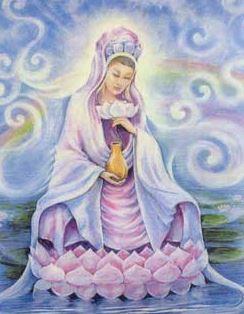
🕊️ 1. Ruḥ / Rūḥ in Semitic Traditions (روح)
In Arabic, Hebrew, and related languages, "Ruḥ" (Arabic: روح, Hebrew: רוּחַ ruach) means spirit, breath, or wind — a profoundly spiritual term.
✡️ In Judaism (Ruach / רוּחַ):
-
Ruach Elohim = the Spirit of God that moved over the waters in Genesis.
-
Refers to divine presence, inspiration, prophecy, and even moods (like ruach ra'ah – an evil spirit).
-
Can mean divine breath, inner life, or prophetic force.
☪️ In Islam (Rūḥ / روح):
-
Appears in the Qur’an as Rūḥ al-Qudus ("Holy Spirit") — often understood as the angel Jibril (Gabriel) or a divine force.
-
Rūḥ is the immaterial soul or divine breath given to Adam (Qur’an 15:29).
-
Described as coming "by command of my Lord", emphasizing mystery and sacredness.
"They ask you about the spirit. Say: the Spirit is from the command of my Lord." — Qur’an 17:85
🔮 2. Ruha in Mandaean Cosmology
In Mandaean religion (a Gnostic sect from Mesopotamia), Ruha takes a very different and more dualistic role:
👁️🗨️ Ruha d-Qudsha (in Mandaeism):
-
A female cosmic figure, often seen as ambiguous or even demonic.
-
Associated with the material world, illusion, and death.
-
In contrast to the higher Lightworld (alma d-nhura), where the true divine beings dwell.
-
Sometimes called Ruha d-Qudsha ("Holy Spirit"), but in Mandaeism, she is not seen positively like in Christianity — rather, as a force of binding or deception in the lower worlds.
This echoes the Sophia fallen aspect in some Gnostic systems — a wisdom-spirit fallen into the material realm.
🧘 3. Ruha as Breath and Life Force (Mystical and Esoteric Traditions)
In more universal mysticism, the concept of Ruha can be understood as:
-
The subtle breath of life that animates all things.
-
Equivalent to prana in Indian philosophy, chi in Taoism, or anima in the Neoplatonic sense.
-
In Sufi metaphysics, Ruḥ is the divine aspect of the soul — not just psyche but a sacred spark of God within.
🌬️ Common Threads Across Traditions
| Term | Language | Meaning | Context |
|---|---|---|---|
| Ruach | Hebrew | Wind, breath, spirit | Hebrew Bible, Kabbalah |
| Rūḥ | Arabic | Soul, spirit, divine breath | Qur’an, Sufism |
| Ruha | Aramaic/Mandaic | Cosmic feminine spirit (often fallen) | Gnostic/Mandaean religion |
| Pneuma | Greek | Spirit, breath, vital force | Christian theology, Stoicism |
| Prana / Qi | Sanskrit / Chinese | Life force energy | Yoga, Taoism |
✨ Esoteric & Philosophical Interpretations
In Kabbalah, Sufism, and Hermeticism, "Ruha/Ruach" is part of a layered soul model:
Example from Kabbalah:
-
Nefesh – Animal soul (life-force)
-
Ruach – Emotional/spiritual soul (moral and ethical self)
-
Neshamah – Higher soul (divine intellect)
So Ruach or Ruha is the bridge between the body and the divine — the vehicle of transformation.

